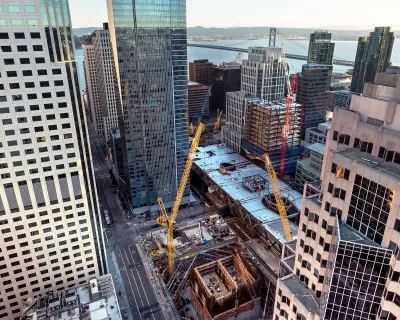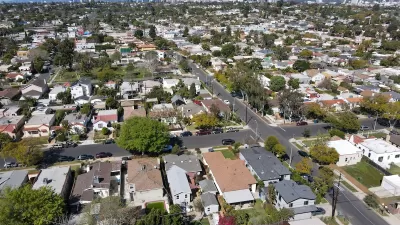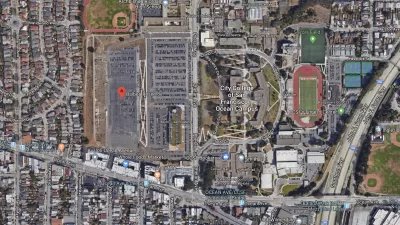Critics of inclusionary zoning frequently point to San Francisco as an example of what not to do. A sluggish year of development has some local politicians ready to reconsider the city’s program.

J.K. Dineen reports in a paywalled article for the San Francisco Chronicle that San Francisco Mayor London Breed is pushing to reconvene a “technical advisory committee” that meets periodically to revisit the city’s inclusionary zoning program. “The eight-person committee, which includes four mayoral and four Board of Supervisors appointees, has not met since February 2018,” according to Dineen.
The premise both of the article and the announcement by Breed’s office is that development in San Francisco is far too slow to provide the housing needed in the city. “So far this year San Francisco has had 1,161 units completed, putting the city on pace to see fewer than 3,000 new homes. Compare that to 2021 when 4,649 units came online. Meanwhile, there are 4,100 units under construction, compared to the high of 10,000 units that were being built in 2016 or 2017,” writes Dineen.
San Francisco’s approach to inclusionary zoning has long been a source of debate about the unintended (or intended) consequences of well-intentioned approaches to support affordable housing construction by requiring developers to include affordable housing in every new residential development. Some critics of the approach say that the requirements make many projects economic infeasible, defeating the purported purpose of the policy and point to San Francisco of a prime example of inclusionary zoning gone too far.
A co-sponsor of the most recent version of the city’s inclusionary zoning policy, Supervisor Aaron Peskin, is quoted in the article saying “it’s definitely time to reconvene” the technical assistance panel.

Maui's Vacation Rental Debate Turns Ugly
Verbal attacks, misinformation campaigns and fistfights plague a high-stakes debate to convert thousands of vacation rentals into long-term housing.

Planetizen Federal Action Tracker
A weekly monitor of how Trump’s orders and actions are impacting planners and planning in America.

In Urban Planning, AI Prompting Could be the New Design Thinking
Creativity has long been key to great urban design. What if we see AI as our new creative partner?

Massachusetts Budget Helps Close MBTA Budget Gap
The budget signed by Gov. Maura Healey includes $470 million in MBTA funding for the next fiscal year.

Milwaukee Launches Vision Zero Plan
Seven years after the city signed its Complete Streets Policy, the city is doubling down on its efforts to eliminate traffic deaths.

Portland Raises Parking Fees to Pay for Street Maintenance
The city is struggling to bridge a massive budget gap at the Bureau of Transportation, which largely depleted its reserves during the Civd-19 pandemic.
Urban Design for Planners 1: Software Tools
This six-course series explores essential urban design concepts using open source software and equips planners with the tools they need to participate fully in the urban design process.
Planning for Universal Design
Learn the tools for implementing Universal Design in planning regulations.
Gallatin County Department of Planning & Community Development
Heyer Gruel & Associates PA
JM Goldson LLC
City of Camden Redevelopment Agency
City of Astoria
Transportation Research & Education Center (TREC) at Portland State University
Jefferson Parish Government
Camden Redevelopment Agency
City of Claremont





























